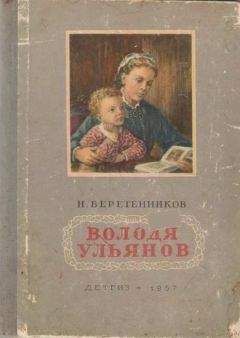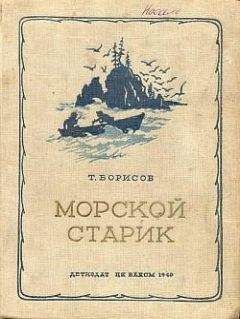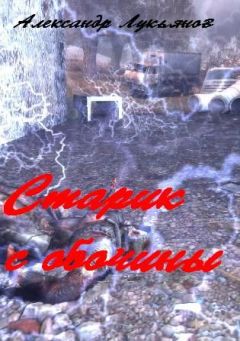Dodie Smith - I Capture the Castle
splashing my legs, and my brother Thomas has returned from school in
our nearest town, King's Crypt. He is a cumbersome lad of fifteen with hair that grows in tufts, so that parting it is difficult. It is the
same mousy color as mine; but mine is meek.
When Thomas came in, I suddenly remembered myself coming back from
school, day after day, up to a few months ago. In one flash I re-lived the ten-mile crawl in the jerky little train and then the five miles on a bicycle from Scoatney station --how I used to hate that in the
winter! Yet in some ways I should like to be back at school; for one
thing, the daughter of the manager at the cinema went there, and she
got me in to the pictures free now and then. I miss that greatly. And I rather miss school itself--it was a surprisingly good one for such a quiet little country town. I had a scholarship, just as Thomas has at his school; we are tolerably bright.
The rain is driving hard against the window now. My candle makes it
seem quite dark outside. And the far side of the kitchen is dimmer now that the kettle is on the round hole in the top of the range. The
girls are sitting on the floor making toast through the bars.
There is a bright edge to each head, where the firelight shines through their hair.
Stephen has finished pumping and is stoking the copper --it is a great, old-fashioned brick one which helps to keep the kitchen warm and gives us extra hot-water. With the copper lit as well as the range, the
kitchen is much the warmest place in the house; that is why we sit in it so much. But even in summer we have our meals here, because the
dining-room furniture was sold over a year ago.
Goodness, Topaz is actually putting on eggs to boil. No one told me
the hens had yielded to prayer. Oh, excellent hens! I was only
expecting bread and margarine for tea, and I don't get as used to
margarine as I could wish. I thank heaven there is no cheaper form of bread than bread.
How odd it is to remember that "tea" once meant afternoon tea to us with little cakes and thin bread-and-butter in the drawing-room. Now
it is as solid a meal as we can scrape together, as it has to last us until breakfast. We have it after Thomas gets back from school.
Stephen is lighting the lamp. In a second now, the rosy glow will have gone from the kitchen. But lamplight is beautiful, too.
The lamp is lit. And as Stephen carried it to the table, my Father
came out on the staircase. His old plaid traveling-rug was wrapped
round his shoulders --he had come from the gatehouse along the top of the castle walls. He murmured: "Tea, tea- has Miss Marcy come with the library books yet?" (she hasn't.) Then he said his hands were quite numb; not complainingly, more in a tone of faint surprise--though I find it hard to believe that anyone living at the castle in winter
can be surprised at any part of themselves being numb. And as he came downstairs shaking the rain off his hair, I suddenly felt so fond of
him. I fear I don't feel that very often.
He is still a splendid-looking man, though his fine features are
getting a bit lost in fat and his coloring is fading. It used to be as bright as Rose's.
Now he is chatting to Topaz. I regret to note that he is in his
falsely cheerful mood--though I think poor Topaz is grateful for even false cheerfulness from him these days. She adores him, and he seems
to take so little interest in her.
I shall have to get off the draining-board--Topaz wants the tea-cozy
and our dog, Heloise, has come in and discovered I have borrowed her
blanket.
She is a bull-terrier, snowy white except where her fondant-pink skin shows through her short hair.
All right, Heloise darling, you shall have your blanket. She gazes at me with love, reproach, confidence and humor- how can she express so
much just with two rather small slanting eyes his I finish this entry sitting on the stairs. I think it worthy of note that I never felt
happier in my life- despite sorrow for Father, pity for Rose,
embarrassment about Stephen's poetry and no justification for hope as regards our family's general outlook. Perhaps it is because I have
satisfied my creative urge; or it may be due to the thought of eggs for tea.
II LA-AR. Written in bed.
I am reasonably comfortable as I am wearing my school coat and have a hot brick for my feet, but I wish it wasn't my week for the little iron bedstead --Rose and I take it in turns to sleep in the four-poster. She is sitting up in it reading a library book. When Miss Marcy brought it she said it was "a pretty story." Rose says it is awful, but she would rather read it than think about herself.
Poor Rose! She is wearing her old blue flannel dressing-gown with the skirt part doubled up round her waist for warmth. She has had that
dressing-gown so long that I don't think she sees it any more; if she were to put it away for a month and then look at it, she would get a
shock.
But who am I to talk--who have not had a dressing gown at all for two years his The remains of my last one are wrapped round my hot brick.
Our room is spacious and remarkably empty.
With the exception of the four-poster, which is in very bad condition, all the good furniture has gradually been sold and replaced by minimum requirements bought in junk-shops. Thus we have a wardrobe without a
door and a bamboo dressing-table which I take to be a rare piece. I
keep my bedside candlestick on a battered tin trunk that cost one
shilling; Rose has hers on a chest of drawers painted to imitate
marble, but looking more like bacon.
The enamel jug and basin on a metal tripod is my own personal property, the landlady of "The Keys" having given it to me after I found it doing no good in a stable. It saves congestion in the bathroom. One rather
nice thing is the carved wooden window-seat- I am thankful there is no way of selling that. It is built into the thickness of the castle
wall, with a big mullioned window above it. There are windows on the
garden side of the room, too; little diamond-paned ones.
One thing I have never grown out of being fascinated by is the round
tower which opens into a corner.
There is a circular stone staircase inside it by which you can go up to the battlemented top, or down to the drawing-room; though some of the steps have crumbled badly.
Perhaps I ought to have counted Miss Blossom as a piece of furniture.
She is a dressmaker's dummy of most opulent figure with a wire skirt
round her one leg. We are a bit silly about Miss Blossom-we pretend
she is real.
We imagine her to be a woman of the world, perhaps a barmaid in her
youth. She says things like "Well, dearie, that's what men are like,"
and "You hold out for your marriage lines."
The Victorian vandals who did so many unnecessary things to this house didn't have the sense to put in passages, so we are always having to go through each other's rooms. Topaz has just wandered through
ours-wearing a nightgown made of plain white calico with holes for her neck and arms; she thinks modern underclothes are vulgar. She looked
rather like a victim going to an Auto da Fe, but her destination was
merely the bathroom.
Topaz and Father sleep in the big room that opens on to the kitchen
staircase. There is a little room between them and us which we call
"Buffer State";
Topaz uses it as a studio. Thomas has the room across the landing,
next to the bathroom.
I wonder if Topaz has gone to ask Father to come to bed--she is
perfectly capable of stalking along the top of the castle walls in her nightgown. I hope she hasn't, because Father does so snub her when she bursts into the gatehouse. We were trained as children never to go
near him unless invited and he thinks she ought to behave in the same way.
No--she didn't go. She came back a few minutes ago and showed signs of staying here, but we didn't encourage her. Now she is in bed and is
playing her lute. I like the idea of a lute, but not the noise it
makes; it is seldom in tune and appears to be an instrument that never gets a run at anything.
I feel rather guilty at being so unsociable to Topaz, but we did have such a sociable evening.
Round about eight o'clock, Miss Marcy came with the books. She is
about forty, small and rather faded yet somehow very young. She blinks her eyes a lot and is apt to giggle and say: "Well, reely!" She is a Londoner but has been in the village over five years now. I believe
she teaches very nicely; her specialties are folk song and wild flowers and country lore. She didn't like it here when first she came (she
always says she "missed the bright lights"); but she soon made herself take an interest in country things, and now she tries to make the
country people interested in them too.
As librarian, she cheats a bit to give us the newest books; she'd had a delivery today and had brought Father a detective novel that only came out the year before last--and it was by one of his favorite authors.
Topaz said:
"Oh, I must take this to Mortmain at once."
She calls Father "Mortmain" partly because she fancies our odd surname, and partly to keep up the fiction that he is still a famous writer. He came back with her to thank Miss Marcy and for once he seemed quite
genuinely cheerful.
"I'll read any detective novel, good, bad or indifferent," he told her,
"but a vintage one's among the rarest pleasures of life."
Then he found out he was getting this one ahead of the Vicar and was so pleased that he blew Miss Marcy a kiss. She said "Oh, thank you, Mr.
Mortmain! That is, I mean--well, reely!" and blushed and blinked.
Father then flung his rug round him like a toga and went back to the
gatehouse looking quite abnormally goodhumored.
As soon as he was out of earshot, Miss Marcy said "How is he ?" in a hushed sort of voice that implied he was at death's door or off his
head.
Rose said he was perfectly well and perfectly useless, as always. Miss Marcy looked shocked.
"Rose is depressed about our finances," I explained.
"We mustn't bore Miss Marcy with our worries," said Topaz, quickly. She hates anything which casts a reflection on Father.
Miss Marcy said that nothing to do with our household could possibly
bore her-- I know she thinks our life at the castle is wildly romantic.
Then she asked, very diffidently, if she could help us with any
advice-- "Sometimes an outside mind .. "
I suddenly felt that I should rather like to consult her; she is such a sensible little woman- it was she who thought of getting me the book on speed-writing. Mother trained us never to talk about our affairs in
the village, and I do respect Topaz's loyalty to Father, but I was sure Miss Marcy must know perfectly well that we are broke.
"If you could suggest some ways of earning money," I
"Or of making it go further--I'm sure you're all much too artistic to be really practical.
Let's hold a board meeting!"
She said it as if she were enticing children to a game. She was so
eager that it would have seemed quite rude to refuse;
and I think Rose and Topaz felt desperate enough to try anything.
"Now, paper and pencils," said Miss Marcy, clapping her hands. Writing paper is scarce in this house, and I had no intention of tearing sheets out of this exercise book, which is a superb sixpenny one the Vicar
gave me. In the end, Miss Marcy took the middle pages out of her
library record, which gave us a pleasant feeling that we were stealing from the government, and then we sat round the table and elected her
chairman. She said she must be secretary, too, so that she could keep the minutes, and wrote down:
INQUIRY INTO THE FINANCES OF THE
MORTMAIN FAMILY
Present:
Miss Marcy (chairman) Mrs. James Mortmain Miss Rose Mortmain Miss
Cassandra Mortmain Thomas Mortmain Stephen Colly We began by discussing expenditure.
"First, rent," said Miss Marcy.
The rent is forty pounds a year, which seems little for a commodious
castle, but we have only a few acres of land, the country folk think
the ruins are a drawback, and there are said to be ghosts-which there are not. (there are some queer things up on the mound, but they never come into the house.) Anyway, we haven't paid any rent for three years.
Our landlord, a rich old gentleman who lived at Scoatney Hall, five
miles away, always sent us a ham at Christmas whether we paid the rent or not. He died last November and we have sadly missed the ham.
"They say the Hall's going to be re-opened," said Miss Marcy when we had told her the position about the rent.
"Two boys from the village have been taken on as extra gardeners. Well, we will just put the rent down and mark it "optional". Now what about food? Can you do it on fifteen shillings a week per head? Say a pound per head, including candles, lamp-oil and cleaning materials."
The idea of our family ever coming by six pounds a week made us all
hoot with laughter.
"If Miss Marcy is really going to advise us," said Topaz, "she'd better be told we have no visible income at all this year."
Miss Marcy flushed and said: "I did know things were difficult. But, dear Mrs. Mortmain, there must be some money, surely?"
We gave her the facts. Not one penny has come in during January or
February. Last year Father got forty pounds from America, where Jacob Wrestling still sells. Topaz posed in London for three months, saved
eight pounds for us and borrowed fifty; and we sold a tallboy to a
King's Crypt dealer for twenty pounds. We have been living on the
tallboy since Christmas.
"Last year's income one hundred and eighteen pounds," said Miss Marcy and wrote it down. But we hastened to tell her that it bore no
relation to this year's income, for we have no more good furniture to sell, Topaz has run out of rich borrowees, and we think it unlikely
that Father's royalties will be so large, as they have dwindled every year.
"Should I leave school?" said Thomas. But of course we told him that would be absurd as his schooling costs us nothing owing to his
scholarship, and the Vicar has just given him a year's ticket for the train.
Miss Marcy fiddled with her pencil a bit and then said:
"If I'm to be a help, I must be frank.
Couldn't you make a saving on Stephen's wages?"
I felt myself go red. Of course we have never paid Stephen
anything--never even thought of it. And I suddenly realized that we
ought to have done so. (not that we've had any money to pay him with
since he's been old enough to earn.) "I don't want wages," said Stephen, quietly.
"I wouldn't take them. Everything I've ever had has been given to me here."
"You see, Stephen's like a son of the house," I said. Miss Marcy looked as if she wasn't sure that was a very good thing to be, but




